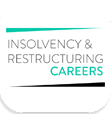In the competitive world of insolvency and accountancy, building a strong personal brand is essential for long-term career success. For young professionals, taking deliberate steps to develop relationships and establish a reputation early on can pave the way for future business opportunities. Here’s how you can build your personal brand and cultivate valuable connections both internally and externally.
Introduction to Personal Branding
Personal branding is about defining and promoting what you stand for as a professional. In the insolvency and accountancy sectors, a robust personal brand can distinguish you from your peers and position you as a go-to expert. Building your brand is not just about showcasing technical skills; it’s about forming meaningful relationships that can lead to referrals and business development opportunities in the future.
Building Relationships Internally
Your journey to a strong personal brand begins within your own firm. Developing connections with colleagues and mentors can provide a solid foundation for your career.
- Engage with Colleagues: Participate in team projects, attend social events, and seek out mentorship programmes within your firm. Building rapport with your peers and superiors can lead to lasting professional relationships.
- Think Long-Term: Understand that colleagues may move on to other firms where they can become valuable contacts for referrals. Maintaining good relationships with current colleagues can pay dividends in the future.
Building Relationships Externally
Networking outside your firm is equally important. Here’s how you can expand your professional network:
- Attend Industry Events: Participate in seminars, conferences, and industry-specific events. These gatherings are excellent opportunities to meet other professionals, share ideas, and make connections.
- Join Professional Societies: Become a member of industry-related societies and professional organisations. Active involvement in these groups can increase your visibility and credibility in the field.
- Volunteer for Speaking Engagements: Offer to speak at events or write articles for industry publications. Sharing your expertise publicly can enhance your reputation and attract potential clients or partners.
Networking Strategies
Effective networking is about quality, not quantity. Here are some tips to build genuine relationships:
- Prepare an Elevator Pitch: Have a concise and compelling summary of who you are and what you do, ready to share when you meet new people.
- Be Approachable: Show genuine interest in others and be open to conversations. Networking is a two-way street, and building relationships requires mutual respect and trust.
- Follow Up: After meeting someone new, follow up with a personalised message to reinforce the connection and express your interest in staying in touch.
The Role of Social Media
Social media platforms, particularly LinkedIn, play a crucial role in building your personal brand.
- Connect with Industry Professionals: Use LinkedIn to connect with colleagues, mentors, and other professionals in the insolvency and accountancy sectors.
- Share Insights and Achievements: Regularly post articles, insights, and updates about your professional journey. This keeps you on the radar of your connections and showcases your expertise.
- Engage with Content: Comment on and share posts from others in the industry. This not only broadens your network but also demonstrates your active participation in industry discussions.
Long-Term Relationship Building
Building and maintaining relationships is an ongoing process. Here’s how to keep your network strong:
- Regular Updates: Keep your contacts informed about your career progress and achievements. This helps maintain the relationship and keeps you top-of-mind for future opportunities.
- Offer Value: Share useful information, make introductions, and provide support to your network. Offering value strengthens your connections and fosters goodwill.
Balancing Technical Expertise and Personal Relationships
While technical skills are fundamental, personal relationships often determine business success.
- Technical Proficiency: Ensure you continuously develop your skills and knowledge to remain a trusted expert in your field.
- Relationship Building: Invest time in building relationships based on trust and mutual respect. People are more likely to refer work to those they know and like.
Final Thoughts
For young professionals in insolvency and accountancy, building a personal brand is a strategic investment in your future. Start early, and focus on developing relationships both within and outside your firm. Remember, business development often hinges on personal connections as much as technical expertise. By taking these steps, you’ll be well on your way to a successful and fulfilling career.
If you’re contemplating a career move and are open to discussing your options or want to get a feel of the market, I’m here for a straightforward, commitment-free chat. Send me an email at slowes@levitaterecruitment.com to arrange a call.
My views are based on my 17 years+ of recruiting for Accountancy Practice and Insolvency professionals.
For advice about your career options, speak to Scott Lowes at Levitate Recruitment, specialists in placing practice-trained accountants and insolvency professionals across the UK, and find the right role to suit your ambitions.







